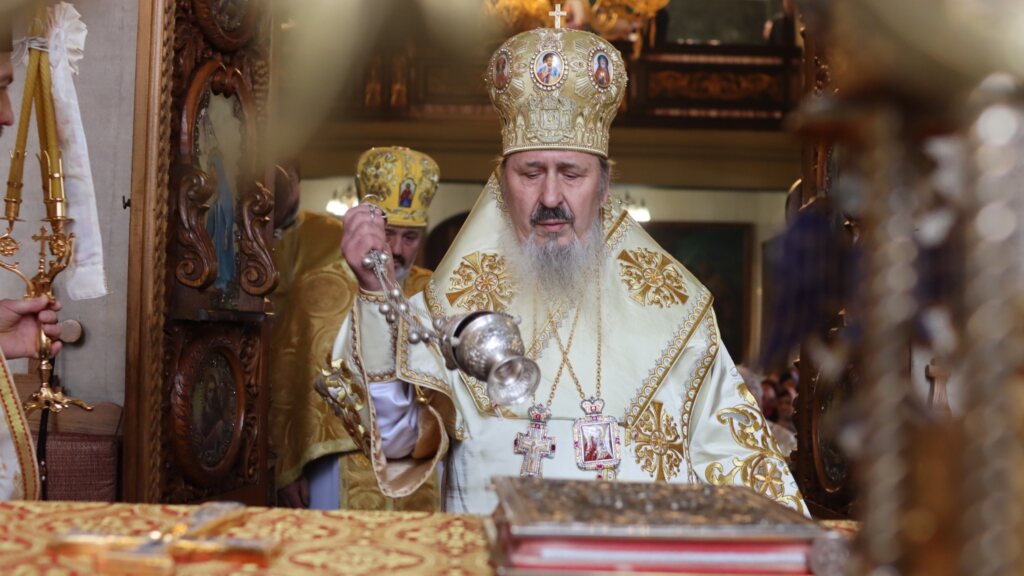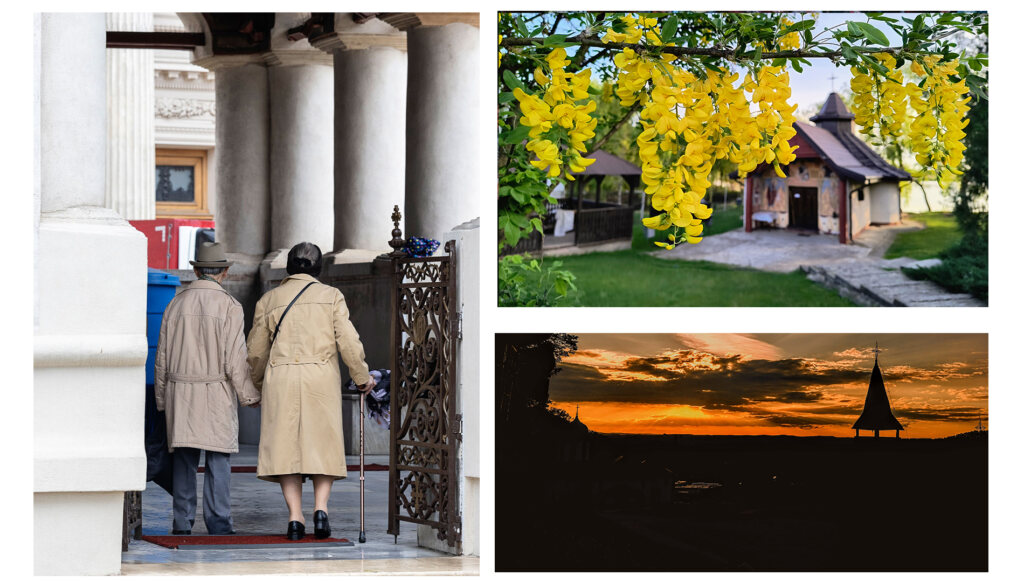The Holy Synod of the Romanian Orthodox Church declared 2021 a Solemn Year of the pastoral care of Romanians outside Romania. Why is pastoral care of the diaspora so important and under what conditions does it take place?
The term diaspora refers to members of an ethnic group who leave their place of origin and scattered throughout the world. It comes from ancient Greek: diaspeiro – “to scatter (seeds)”
Initially, the term referred to the Babylonian Exile of the Jews after the destruction of Jerusalem in the sixth century BC. Subsequently, the meaning of the word was extended to cover the migration of any population outside the borders of the country of origin.
The recent migration of Romanians is an unprecedented phenomenon in the history of our people: only between 2000 and 2015, Romania lost a tenth of its population in this way (the estimate, based only on official figures, is minimal).
We offer some data about the Romanian diaspora today and its importance for the life of the Church and for the Romanian identity.
1. How big is the Romanian Diaspora?
The Romanian diaspora is one of the most numerous in the world. Media reported that it would rank second in the world after the Syrian diaspora, but Dan Dungaciu, director of the Institute of Political Science and International Relations “Ion I. C. Brătianu” of the Romanian Academy, explained why this statistic is false.
He said that Romanians abroad fall into three categories:
- Romanians from the territories that were once part of Romania: Bessarabia (today’s Republic of Moldova), Budjak and Chernivtsi (in today’s Ukraine)
- Romanians who have never been part of the Romanian state: those from Transcarpathia (historic Maramureș), those from the Timok Valley (in Serbia and Bulgaria) and the Aromanians scattered in the Balkans
- The diaspora itself, made up of Romanians who left the borders of their own free will
“A common mistake when estimating their number is to include the first two categories in the last and then it is said that Romania has produced the largest diaspora after Syria, which is false,” Professor Dungaciu considers.
In fact, data published in a recent report by the Organization for Economic Cooperation and Development (OECD) show that the Romanian diaspora is the fifth largest in the world, comprising about 2.3 million people.
2. Where did most Romanians go abroad?
The OECD report shows that most Romanians in the diaspora are in Italy (over one million), Germany (680,000) and Spain (573,000).
Although the Latin-speaking countries host the majority of Romanian emigrants, Germany is the main destination for those with higher education.
3. An annual day dedicated to the diaspora in the Romanian Patriarchate
In 2009, the Romanian Patriarchate instituted “Romanian Migrants’ Sunday“, celebrated on the first Sunday after the Dormition of the Theotokos. The day was marked since 2006 in the Metropolis of Moldavia, at Patriarch Daniel’s initiative since his tenure as Metropolitan of Moldavia and Bukovina.
4. What does the Church do for Romanians in the diaspora?
a) Establishes new parishes and non-parish churches
The Romanians took Orthodoxy with them to the host countries, and the liturgical life helps them to preserve their identity. Therefore, in the last decade, one of the pastoral priorities of the Romanian Orthodox Church has been the consolidation of Romanian communities in the diaspora.
The Romanian Patriarchate makes efforts to maintain the unity and identity of Romanians by establishing dioceses, deaneries and parishes. In 2018, the Romanian Orthodox Church had 14 dioceses in the diaspora. There were 1,303 parishes and non-parish churches served by 1,098 clerics.
b) Carries out social, educational and cultural programs
- Social support and involvement
Several parishes organize philanthropic actions for socially vulnerable Romanians, for some Romanians who need treatment abroad, for children in rural areas who need support to go to school.
Recently, parishes in the diaspora have raised money to support Covid-19 hospitals in the country and provide children in Romania and Bessarabia with electronic tablets for online classes.
Several parishes in the diaspora have also developed support and accommodation centres for women in pregnancy.
Such a project operates in the Parish of Turin II, which has the most intense social involvement in the Romanian Diocese of Italy. A similar pro-life point was established, through the involvement of Metropolitan Iosif Pop at Godoncourt Monastery in France.
- Religious education
Father Daniel Buda, Dean of the Faculty of Orthodox Theology in Sibiu, recently presented a situation of religious education in the Romanian diaspora. It takes place in countries where there is an agreement between the Romanian state and the host state, as well as in some areas (in Germany, for example) where there is the percentage of Orthodox faithful required by law, to allow religious education in schools.
Where Religion classes cannot be held in schools, parishes offer Sunday School programs.
In 2018, a pilot project was carried out in the Diocese of Italy, together with World Vision International, which ensured the training of people involved in carrying out catechetical activities within the Sunday School. Subsequently, the project was introduced in the Diocese of Spain and Portugal.
- Activities for young people
The parishes carry out activities to promote the Romanian culture and traditions.
In an interview with Nepsis Rome, Archdeacon Sorin Mihalache said that young people in the diaspora “more clearly identify the spiritual component as an essential component of their lives.”
He added that young people in the diaspora are more interested in what Romania and the Romanian national specificity represent. “They have a certain temptation to better preserve these things.”
5. Where parishes in the diaspora operate?
Some Romanian Orthodox communities – for example those in Vienna or Munich – build their own church, others buy properties and adapt them for the Orthodox liturgical life and their parish activities. And others enter into agreements with local Roman-Catholic churches to use their spaces alternately.
The Solemn Year of the pastoral care of Romanians outside Romania will be a good opportunity to reconsolidate the diaspora’s ties with the country and to support Romanians abroad to preserve their identity.
Photography courtesy of Facebook / Diocese of Northern Europe
This article was first published in Romanian by Stefana Totorcea






